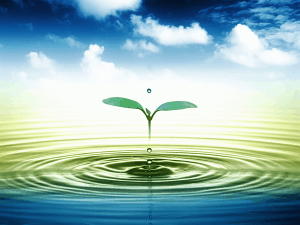What is Mindfulness, and How Can It Help Me?
Mindfulness means paying attention in a particular way: on purpose, in the present moment, and non-judgmentally.” – Jon Kabbat Zinn
Mindfulness is a tool for reducing suffering and making life more satisfying. It also is confusing and widely misunderstood. Let’s take a look at it to understand how it works, and how it might benefit you.
State vs. Trait
I view mindfulness two different ways:
-
-
- As a State: We use a formal practice that trains our mind to be focused, aware, and non-judgmental. We are trying to create a state of deep concentration that is different from our normal state. This is what is commonly called “meditating”.
- As a Trait: Our overall, ongoing amount of awareness and equanimity we have of our bodies, thoughts, and sensory experiences as we go about our life. This is developed by practicing formal mindfulness practice.
-
Exercise Your Mind
A good way of understanding mindfulness is to compare it to physical exercise. When you exercise, you’re created a special state in your body by increasing your heart rate, stressing muscles, developing flexibility, etc. Hopefully this feels good and satisfying in and of itself!
With regular exercise, you increase your overall physical fitness on an ongoing basis. You have strength, endurance, an improved immune system and many other benefits even though you are not exercising at that moment. With regular exercise, you can vastly improve your body’s performance.
Mindfulness practice is essentially the same thing. Through formal practice creating very special states, you develop enhanced mental, emotional, and even physical advantages even when you’re not “meditating”.
This might be roughly defined as our amount of here and now, as contrasted to our more typical state of mind, which is often lost in our thoughts about the future our past. In addition to our attention, mindfulness has a quality of non-judgement, or equanimity, as I prefer to call it. Equanimity is a type of radical acceptance of reality on an ongoing basis.

Many of struggle to be present, especially when we’re depressed, anxious, or having problems in life. We certainly aren’t very accepting of what is happening to us.
Putting It To Use
If we get a better baseline of mindfulness as “trait” in our lives overall, it can help use get through tough moments. It might be a conflict with a partner, losing a job, or experiencing a depressive episode. We may not struggle as much, and we might be able to come up with better solutions to our problems more rationally, rather than reacting with our emotions. We can also use some formal mindfulness practice to get an extra boost during these times.
The Catch
Mindfulness is hard!! I think anyone who has read this far has tried mindfulness a few times, even serious effort. It can be frustrating because you may not know if you’re doing it right. You might have read a book about. It’s like leaning how to play gold from a book. It can also be confusing because there seem to be so many ways to teach mindfulness.
Many mindfulness classes are associated with religious or spiritual traditions that may not be interesting to you. It can especially uncomfortable when it has lots pageantry, chants, robes, or venerated gurus if that’s not your thing.
I happen to think that this is all unnecessary. I learned an approach to mindfulness that is clear about its techniques, secular, and effective (IMHO). I can introduce you to specific mindfulness exercises for your problems, and address any questions or problems that emerge along they way.
Think of it has having your own personal mindfulness coach! This fits back to my comparison of mindfulness being like physical exercise. You come in with specific issues; I come up with exercises to address them, we practice together, and then you can do them on your own for the rest of your life. You’re up front investment in mindfulness training can pay huge dividends over time. I am very confident this will increase the quality of your life in the long run.
